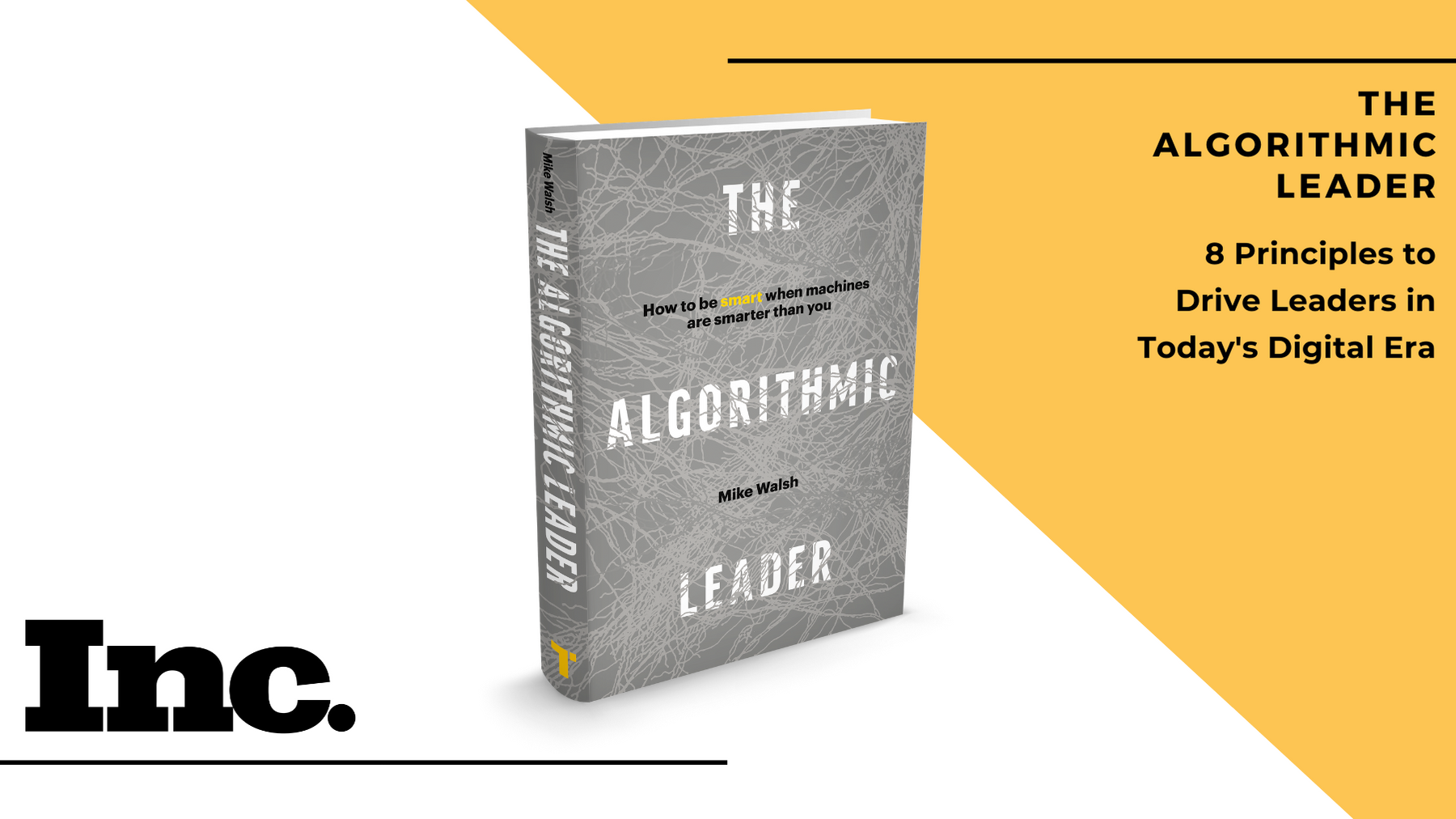
The majority of business professionals I meet these days accept that we are now deep in the digital age, where mountains of data are gathered on everything we do, online and offline. Yet most executives are struggling with how to harness this data with artificial intelligence and machine learning, and use it to hone their intuition and improve their business leadership.
In fact, I believe that to be a successful leader in this new era requires a different way of thinking and a different set of skills, to complement the gut instinct reliance of past leaders.
Leaders today need to understand and utilize the algorithmic compute power of artificial intelligence that supports the hyper-personalization in everything from shopping to news delivery to dating today.
Some people call this the emergence and development of a new type of leader, called the algorithmic leader, who can steer the course through the world of big data, machine learning, and the constantly changing demands of new customers and social trends. I found some real insights on this direction in a new book, "The Algorithmic Leader," by Mike Walsh.
Walsh is a global consultant and thought leader on designing companies for the 21st century, and he has listened and consulted with many leaders on how to thrive in this era of disruptive technological change.
He offers a set of operating principles that I will subset here for aspiring future leaders who need to move from the past analog-era thinking to the new digital age:
1. Work backward from the future.
Only your human element can imagine what life might be like in ten years. Focus on experiences, not devices, as Steve Jobs did back in 2007 when he introduced the iPhone as a new experience, not a phone, then used technology to make it happen.
He anticipated his future customers and what they might want.
2. Aim for 10x gains, not 10 percent.
Your job is thinking big enough about your future opportunities, and letting the data and machine learning do the incremental work.
The challenge of being an algorithmic leader is to be brave enough to pursue opportunities that deliver results in multiples, not just margins, and continuous change to stay ahead.
3. Leverage data and compute power for rapid growth.
This requires computational thinking to formulate challenges and solutions in a form that can be effectively carried out by information processing systems, rather than leader intuition.
If artificial intelligence can expedite gaming wins, think what it might do in healthcare and other complex arenas.
4. Embrace uncertainty as the opportunity.
In the analog era, uncertainty increased the risk and the cost of all change, and taking more time reduced the risk.
Now you have the challenge of keeping ahead of competitors and trends, with more data, a probabilistic mindset, and rapid machine learning to give you the edge, if you use all of these wisely.
5. Foster a culture of algorithmic teams.
Rather than controlling people through process, reinforce the principles of the new era, and provide the autonomous environment that people need to leverage data and machine learning.
Look for ways to collect data on how to work, and design ways for all to continually check for results and new approaches.
6. Automate work and elevate people jobs.
Make automation not only an opportunity to elevate your teams, but also an invitation to profoundly re-imagine what people do. What things can you and they do that simply couldn't be done without the new smarter algorithms?
Find the new jobs inside the old ones, and invest in the skills required.
7. Humanize, don't standardize, the customer experience.
The most successful organizations in the algorithmic age will embrace the complexity of human behavior and translate it into individualized, immersive experiences.
Include human judgment to avoid errors, bias, or inhuman choices. Human relationships are still top priority for customers.
8. Connect teams to a purpose, not just profit.
People at work need a sense of identity and purpose, as well as material things. Don't let algorithms manage more and more of your interactions with your teams. You as a leader must still be the role model for changing the way you work, and finding a personal connection to a purpose for work.
Overall, every business professional and leader in this new world must remember that artificial intelligence and algorithms are just tools. There are no robot overlords coming for your job, unless you choose to create some.
For now at least, humans remain in the driver seat, and your customers are all humans, so keep that as top-of-mind as you lead new approaches in your business.

